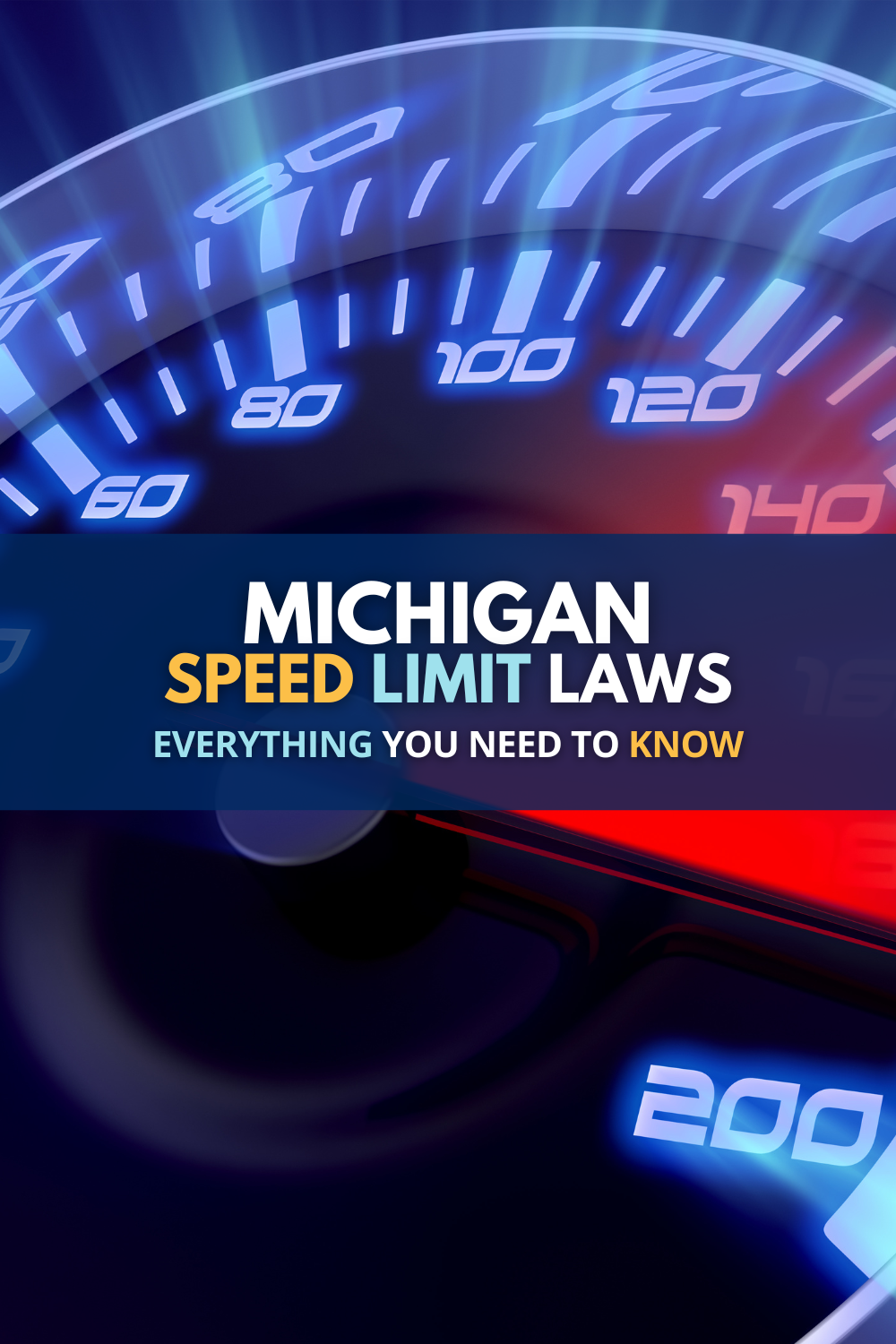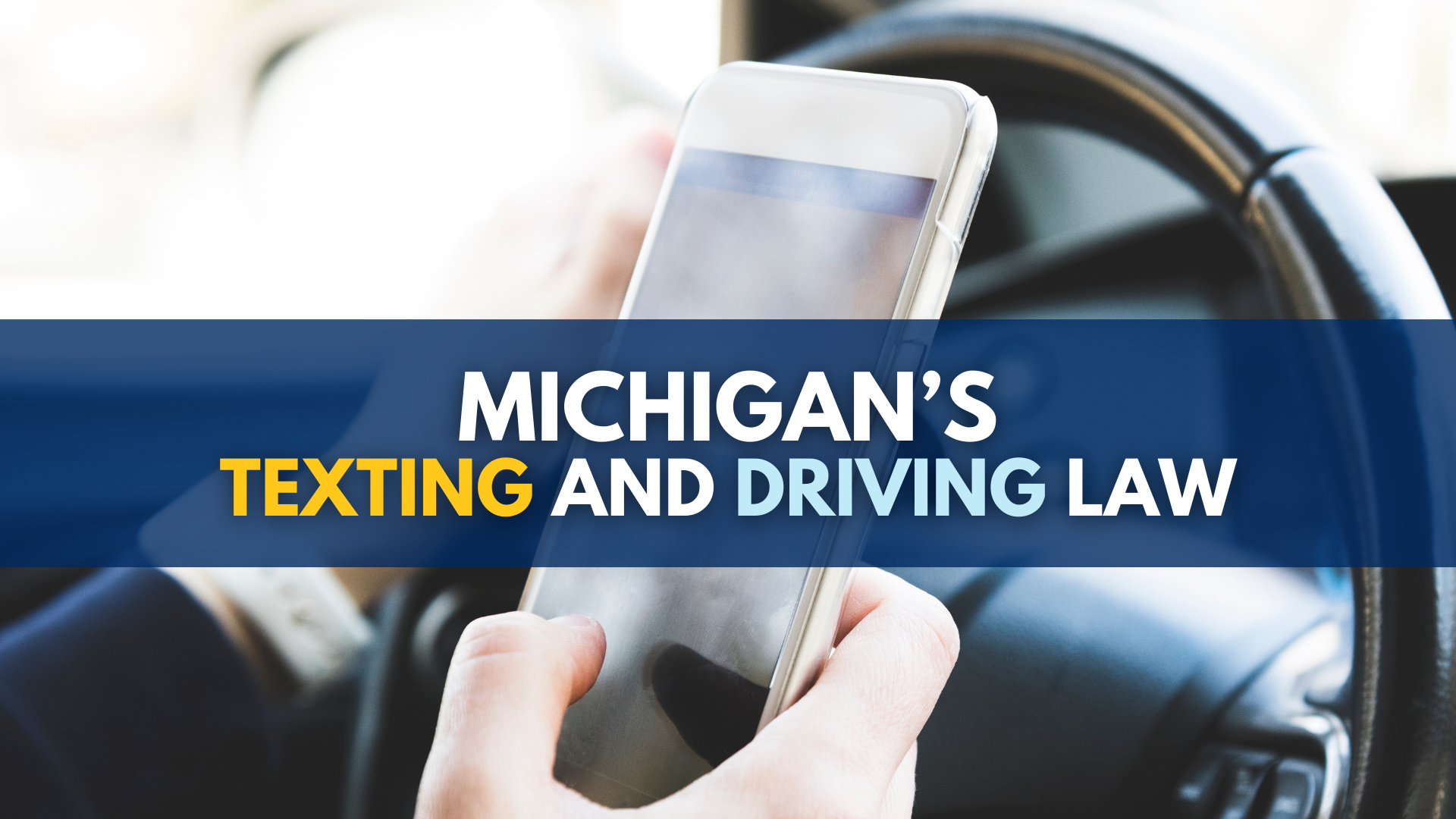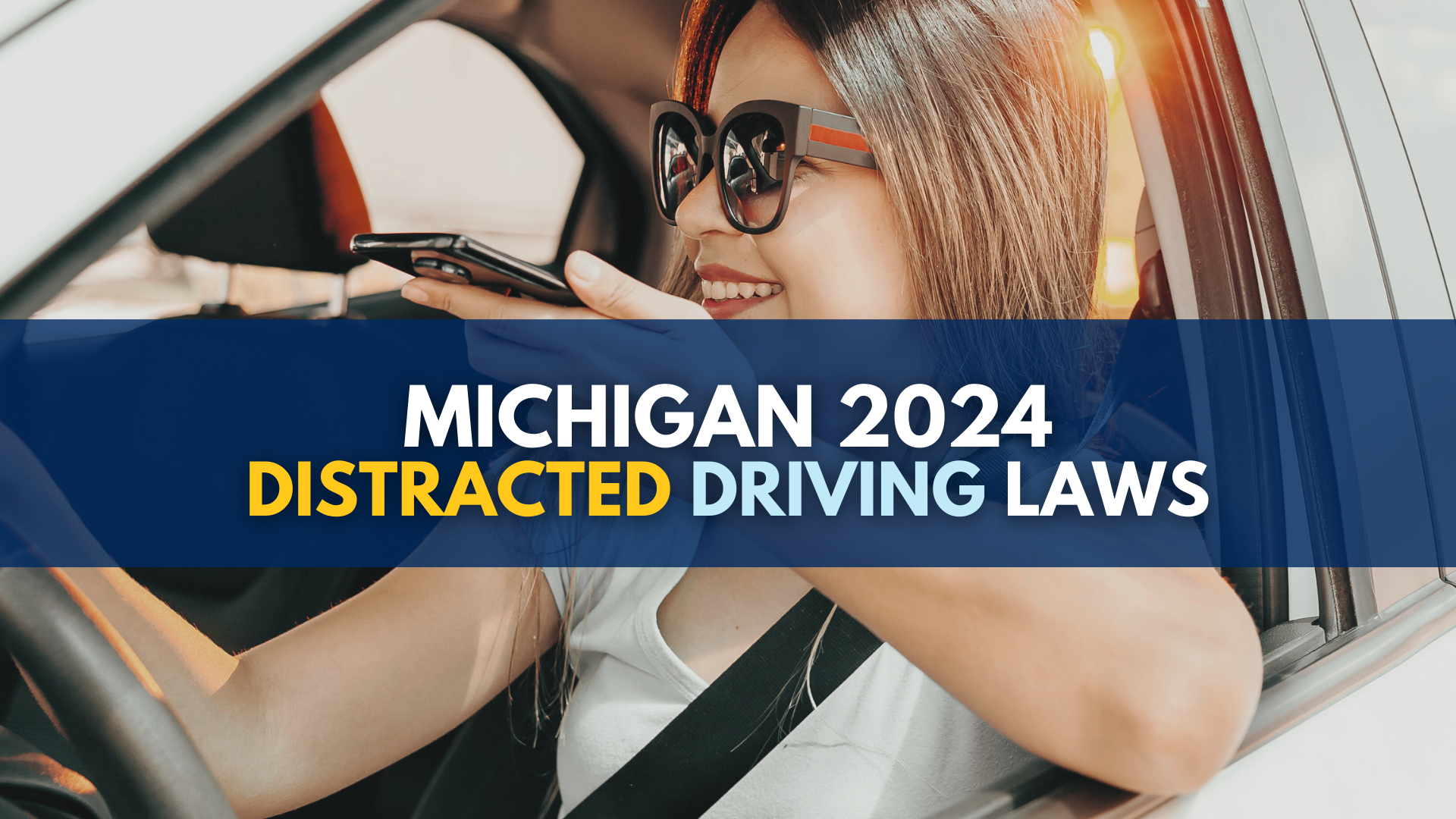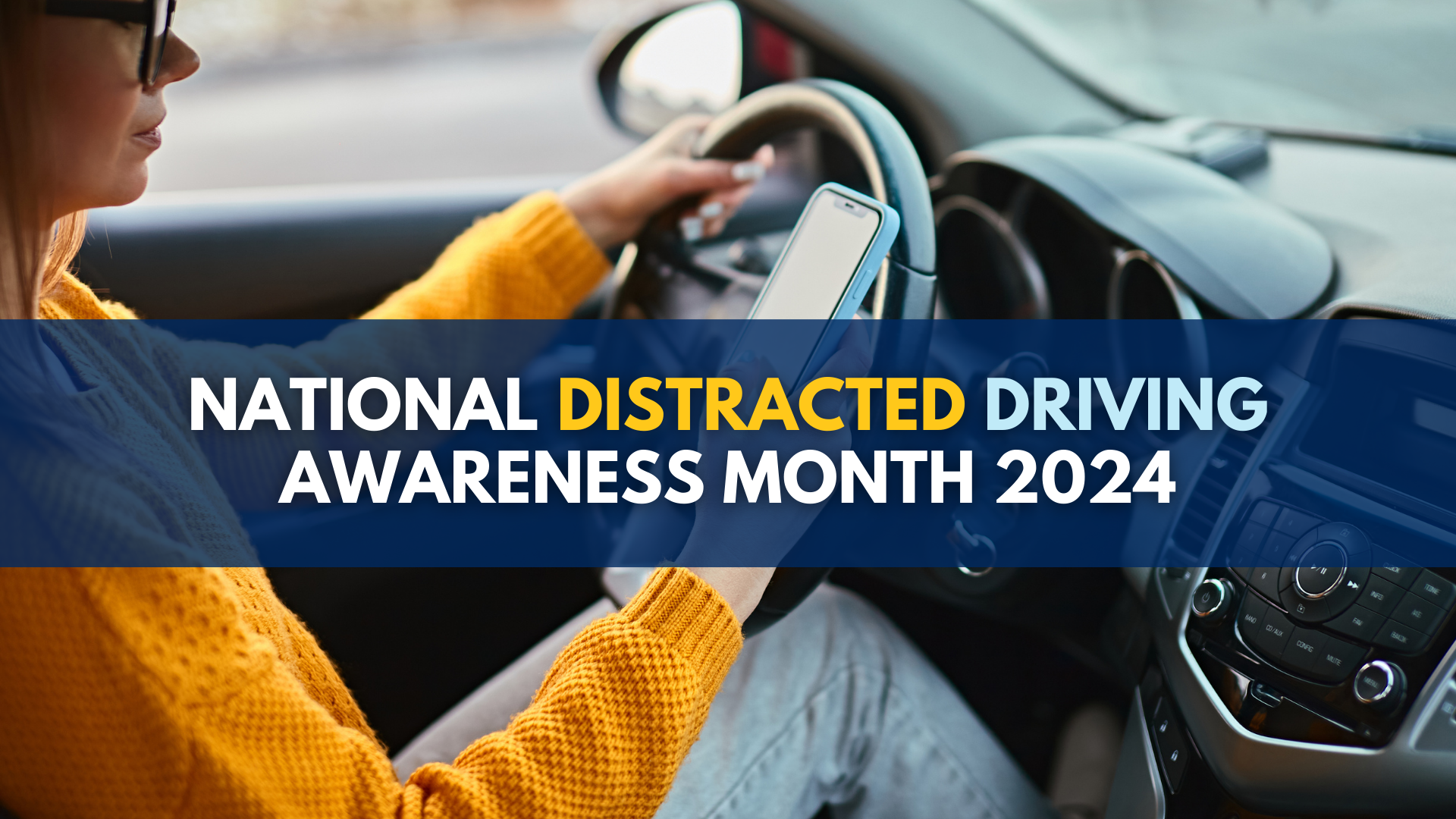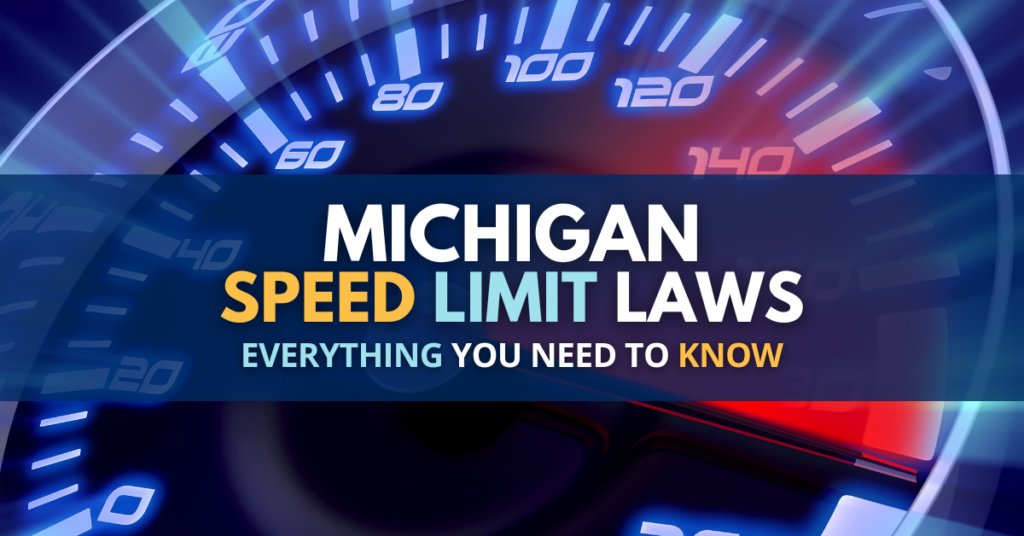
Every driver needs to know about Michigan speed limit laws. There are specific maximum speed restrictions that apply to residential areas, work zones, freeways, trunk line highways and dirt or gravel roads. Some speeds must be posted, while others require no signs. The penalties for speeding are significant.
Drivers also need to be aware of the dangers that they face when they are driving too fast. In 2021 in Michigan, excessive speed was a factor in 21% of crash-related deaths and 15.5% of injuries. In the U.S. that same year, 29% of all traffic-related deaths involved motor vehicles being driven at rates in excess of the speed limit. Not surprisingly, the number of people killed in speeding-related crashes in the U.S. in 2021 increased 7.9% over 2020.
(Sources: Michigan Traffic Crash Facts, 2021, Fact Sheets, “Speeding”; NHTSA, “Speeding” page; NHTSA, “Overview of Motor Vehicle Traffic Crashes in 2021,” April 2023)
What is the speed limit law in Michigan?
In Michigan, the basic speed limit law requires that a person driving “a vehicle” on a “highway” must drive “at a careful and prudent speed not greater than nor less than is reasonable and proper” and that is not “greater than that which will permit a stop within the assured, clear distance ahead.” (MCL 257.627(1))
A violation of these requirements “shall be known and may be referred to as a violation of the basic speed law . . .” (MCL 257.627(1))
The Michigan Vehicle Code defines a “vehicle” as “every device in, upon, or by which any person or property is or may be transported or drawn upon a highway,” excluding “devices exclusively moved by human power or used exclusively upon stationary rails or tracks . . .” (MCL 257.79) Additionally, the Vehicle Code defines a “highway” as a “way” that is “publicly maintained” and is “open to the use of the public for purposes of vehicular travel.” (MCL 257.20)
What is the speed limit on Michigan highways?
In Michigan, the highway speed limit is 70 mph for regular vehicles and 60 mph for trucks and buses unless a different maximum restriction is posted. This maximum applies on all “limited access freeways” which is what people generally refer to when they talk about “highway” driving. This is known as the “limited access freeway general speed limit.” (MCL 257.627(8))
Although the Michigan Vehicle Code does not specifically define what a “limited access freeway” is, we can glean from the Code’s definitions of “freeway,” “through highway” and “limited access highway” as well as the Michigan Department of Transportation’s definitions that a “limited access freeway” is a divided highway that is “designed for the unimpeded movement of large volumes of traffic” and that can be accessed only at certain “points” such as interchanges or on- and off-ramps. (MCL 257.18a; 257.26; 257.68; and “MDOT Road Terms and Definitions”)
Examples of Michigan “freeways” include:
- M-10 – Lodge Freeway (Metro Detroit)
- M-39 – Southfield Freeway (Metro Detroit)
- M-8 – Davison Freeway (Metro Detroit)
- I-696 – Walter P. Reuther Freeway (Metro Detroit)
- I-96 – Jeffries Freeway (Metro Detroit)
- I-94 – Edsel Ford Freeway (Metro Detroit)
- I-75 – Walter P Chrysler Freeway/Fisher Freeway (Metro Detroit)
- I-69 – Chevrolet-Buick Freeway (Genesee County)
- M-6 – South Beltline Freeway/Paul B. Henry Freeway (Kent/Ottawa County)
What is the minimum speed limit on Michigan highways?
In Michigan, the minimum speed limit on all limited access highways and freeways is 55 mph unless posted otherwise. (MCL 257.627(8))
Speed limit for trunk line and county highways
The speed limit on all trunk line highways and all county highways is 55 mph unless posted otherwise. This is known as the “general speed limit.” (MCL 257.627(9))
The Michigan Vehicle Code does not define what a “trunk line” highway is, but the MDOT’s “Road Terms and Definitions” page explains that “The State Trunkline in the State of Michigan consists of all roads under MDOT jurisdiction, including all Interstate routes, US routes, M routes, Interstate business loops and spurs, US business routes, M business routes, connector routes, and unsigned state trunkline in Michigan.”
What is the speed limit in residential areas?
The speed limit in a residential subdivision is 25 mph. Until January 1, 2024, the speed limit on a local street in an area zoned for residential use is 25 mph “unless another speed is fixed and posted.” Also, the speed limit within the boundaries of a mobile home park is 15 mph. (MCL 257.627(2)(a), (d) and (e))
What is the speed limit in Michigan in if not posted in residential areas?
In Michigan, if the speed limit is not posted, the speed limit in a residential area is 25 mph. If the residential area is a mobile home park, then the speed limit is 15 mph.
Business districts
The speed limit in a business district is 25 mph. (MCL 257.627(2)(b)) However, this speed limit is valid only if a traffic control order has been filed with the clerk of the county in which the business district is located. (MCL 257.627(12))
Parks
The speed limit “within the boundaries of a public park” is 25 mph, but “a local authority” may decrease the maximum speed restriction so long as it is not less than 15 mph. (MCL 257.627(2)(c))
Work zones
The speed limit for a driver who is entering and passing through a work zone is 45 mph unless the MDOT or county or local road commission sets a different restriction. Signs must be posted for each work zone which indicate the speed limit for that work zone. (MCL 257.627(6))
School zones
The speed limit in school zones may be set at “not more than 20 miles per hour less than the speed limit normally posted but shall be not less than 25 miles per hour.” (MCL 257.627a(2))
What is the speed limit on dirt roads in Michigan?
In Michigan, the speed limit on all county highways with a gravel or unimproved surface (aka dirt roads) is 55 mph unless posted otherwise. This is known as the “general gravel road speed limit.” However, a municipality within a county with a population of 1 million or more can lower the speed limit to 45 mph. (MCL 257.627(10))
What is the speed limit on unmarked roads in Michigan?
In Michigan, the speed limit on unmarked roads is 25 mph in residential areas and 55 mph on trunk line and county highways. However, on other roads, if there is no properly posted speed limit sign, the “basic speed law” applies which requires a careful, prudent, reasonable and proper speed. (MCL 257.627(12))
Can you go 5 miles over the speed limit in Michigan?
In Michigan, it is not legal to go 5 miles over the speed limit. A driver who violates the laws is responsible for a civil infraction and faces up to a $100 fine, points on his or her driver’s license, and up to $100 in court costs. (MCL 257.627(16); 257.628(9))
Generally, the fine for the civil infraction of speeding cannot be more than $100.00. (MCL 257.907(2)(a)) Similarly, court costs associated with a speeding ticket cannot exceed $100.00. (MCL 257.907(4))
The points that speeding driver may get on his or her driver’s license include:
- More than 15 mph over the speed limit (as set by law or ordinance): Four (4) points (MCL 257.320a(1)(h))
- More than 10 mph and up to 15 mph over the speed limit (as set by law or ordinance): Three (3) points (MCL 257.320a(1)(n))
- More than 5 mph and up to 10 mph over the speed limit (as set by law or ordinance): Two (2) points (MCL 257.320a(1)(p))
- More than 1 mph and up to 5 mph over the speed limit (as set by law or ordinance): One (1) point (MCL 257.320a(1)(q))
The points that apply to speed violations in work zones are:
- More than 15 mph over the speed limit in a work zone: Five (5) points (MCL 257.320a(1)(g))
- More than 10 mph and up to 15 mph over the speed limit in a work zone: Four (4) (MCL 257.320a(1)(k))
- 10 mph or less over the speed limit in a work zone: Three (3) points (MCL 257.320a(1)(w))
If a driver is found responsible for a civil infraction for violating the maximum speed limit on a “limited access freeway” where the “maximum speed limit is 55 miles per hour or more,” then he or she will have the following points put on his or her license and the driver will be required to pay “a minimum fine” in the following amounts: (MCL 257.629c(1))
- 1 to 5 mph over the speed limit: Zero (0) points and a $10 fine
- 6 to 10 mph over the speed limit: One (1) point and a $20 fine
- 11 to 15 mph over the speed limit: Two (2) points and a $30 fine
- 16 to 25 mph over the speed limit: Three (3) points and a $40 fine
- 26 mph or more over the speed limit: Four (4) points and a $50 fine
How much over the Michigan speed limit is a felony?
Driving over Michigan speed limits is not a felony. However, depending on the circumstances, if a driver’s excessive speed constitutes “reckless driving,” then he or she could be guilty of a felony if his or her speeding causes the death or “serious impairment of body function” of another person. (MCL 257.626(3) and (4))
Additionally, if a driver goes over the maximum limits in a work zone or school bus zone and causes the death of another person in the work zone or school bus zone, then the driver is guilty of a felony, which is punishable by a fine of not more than $7,500 or up to 15 years in prison, or both. (MCL 257.601b(3))
Need help finding the right injury lawyer? Call Michigan Auto Law
If you have been injured in a car accident and would like to speak to an experienced car accident injury attorney, call toll free anytime 24/7 at (800) 968-1001 for a free consultation with one of our attorneys. You can also get help by visiting our contact page or you can use the chat feature on our website.
